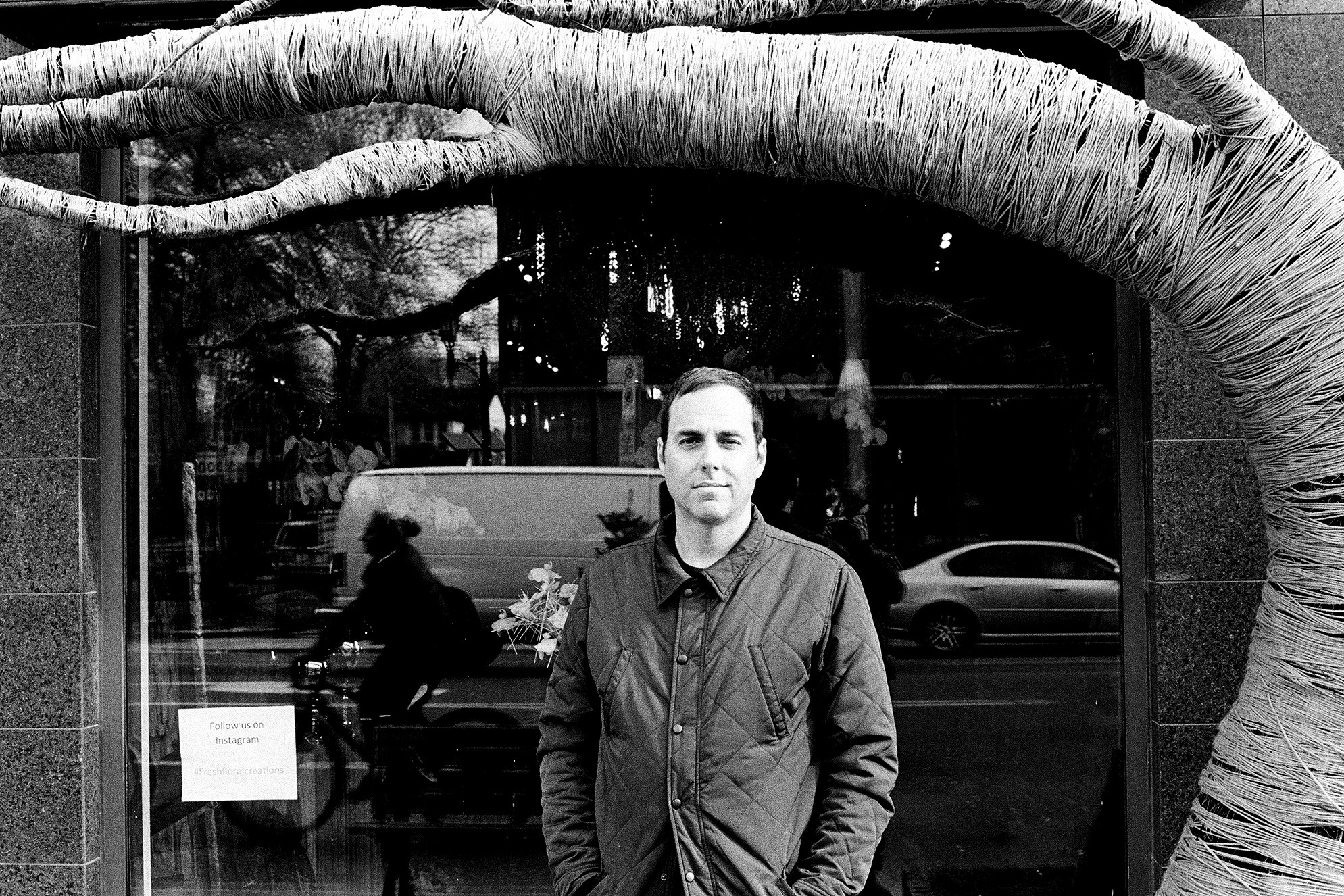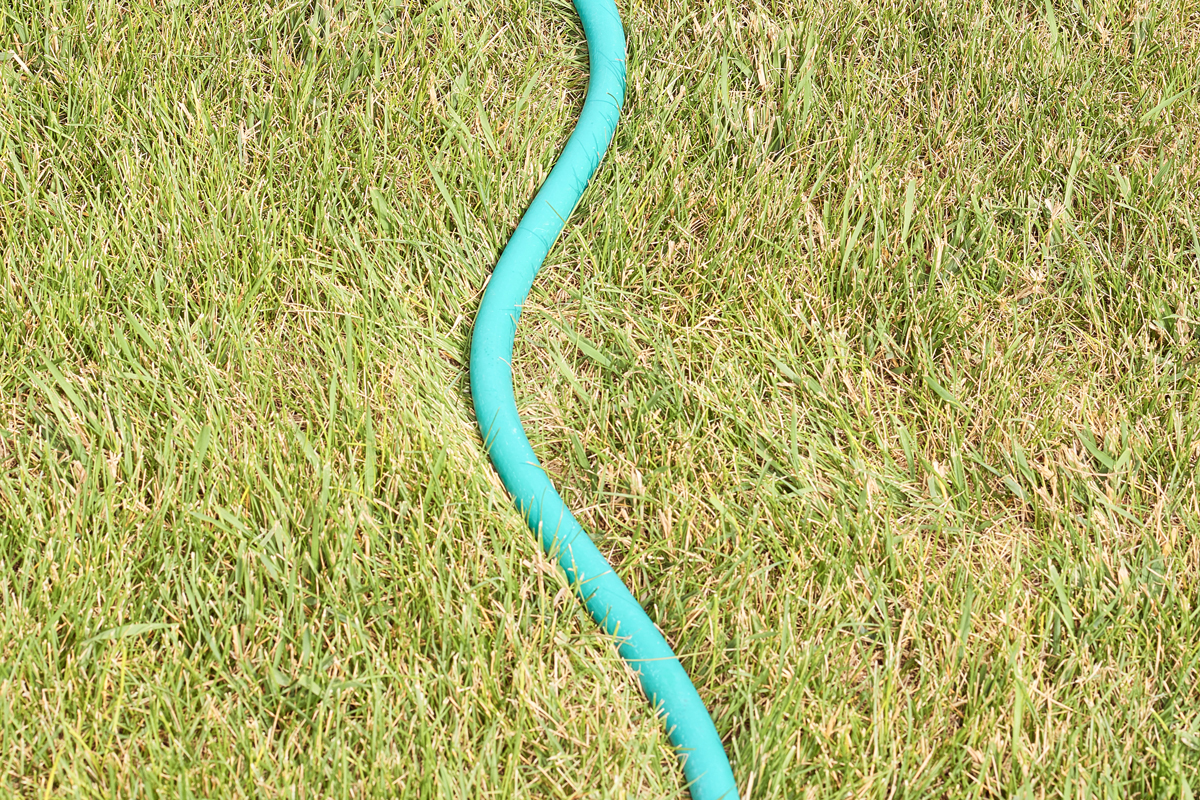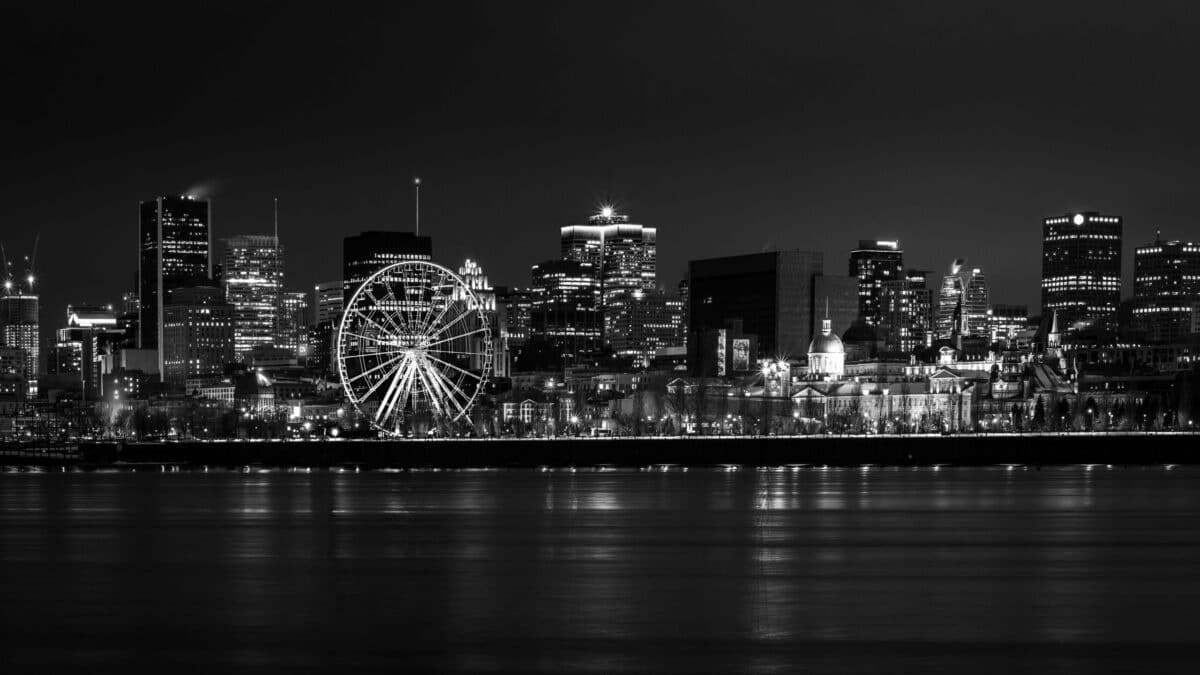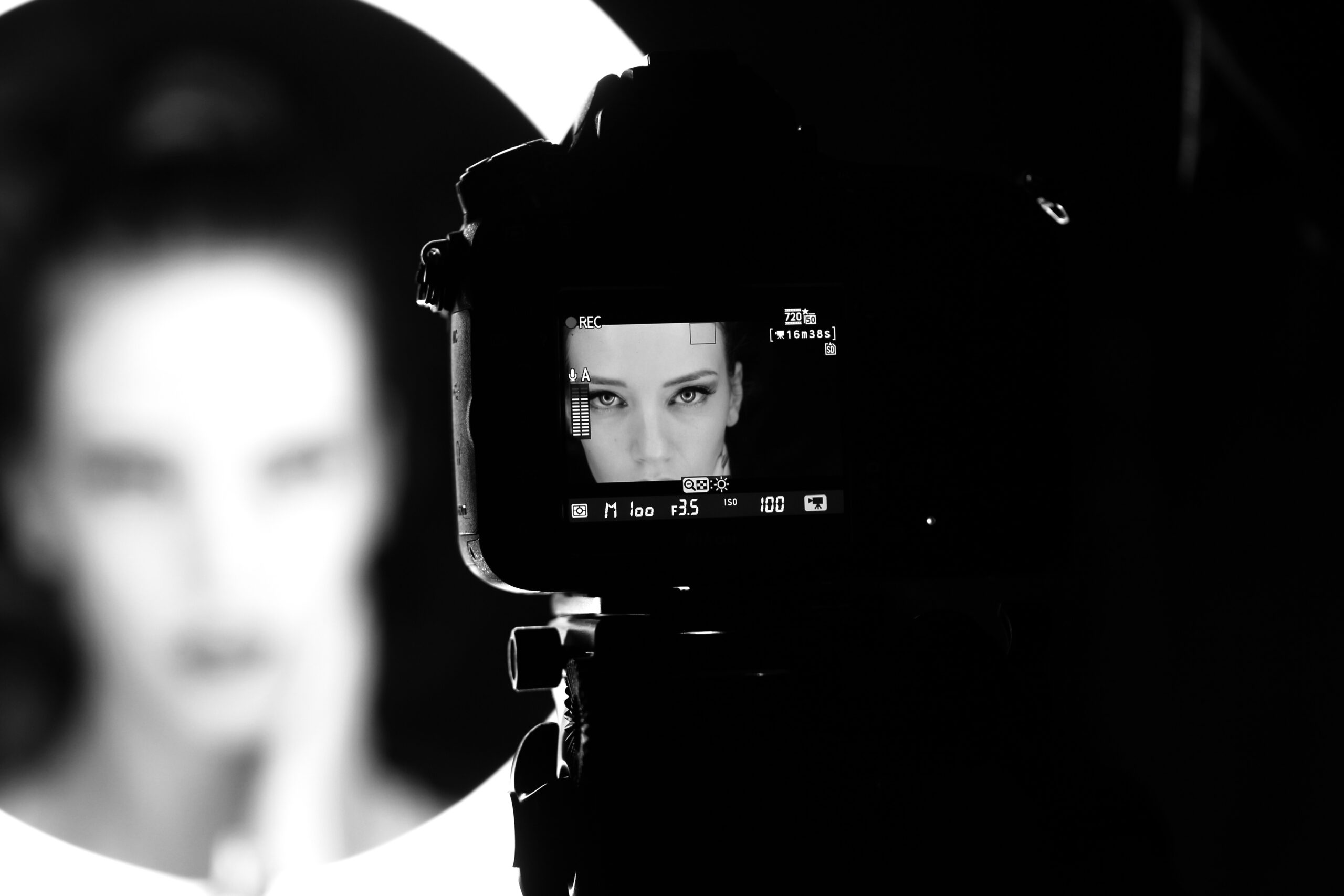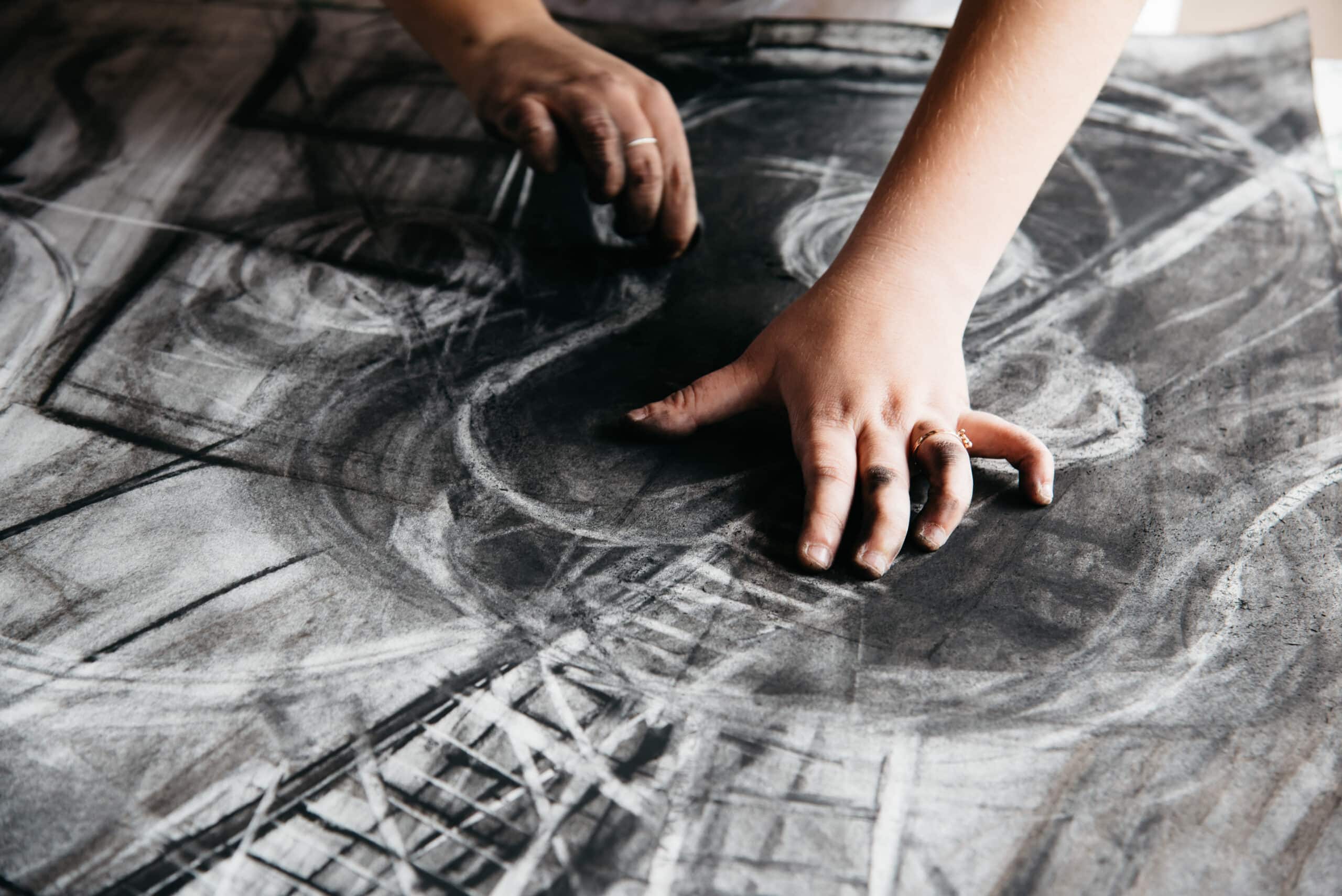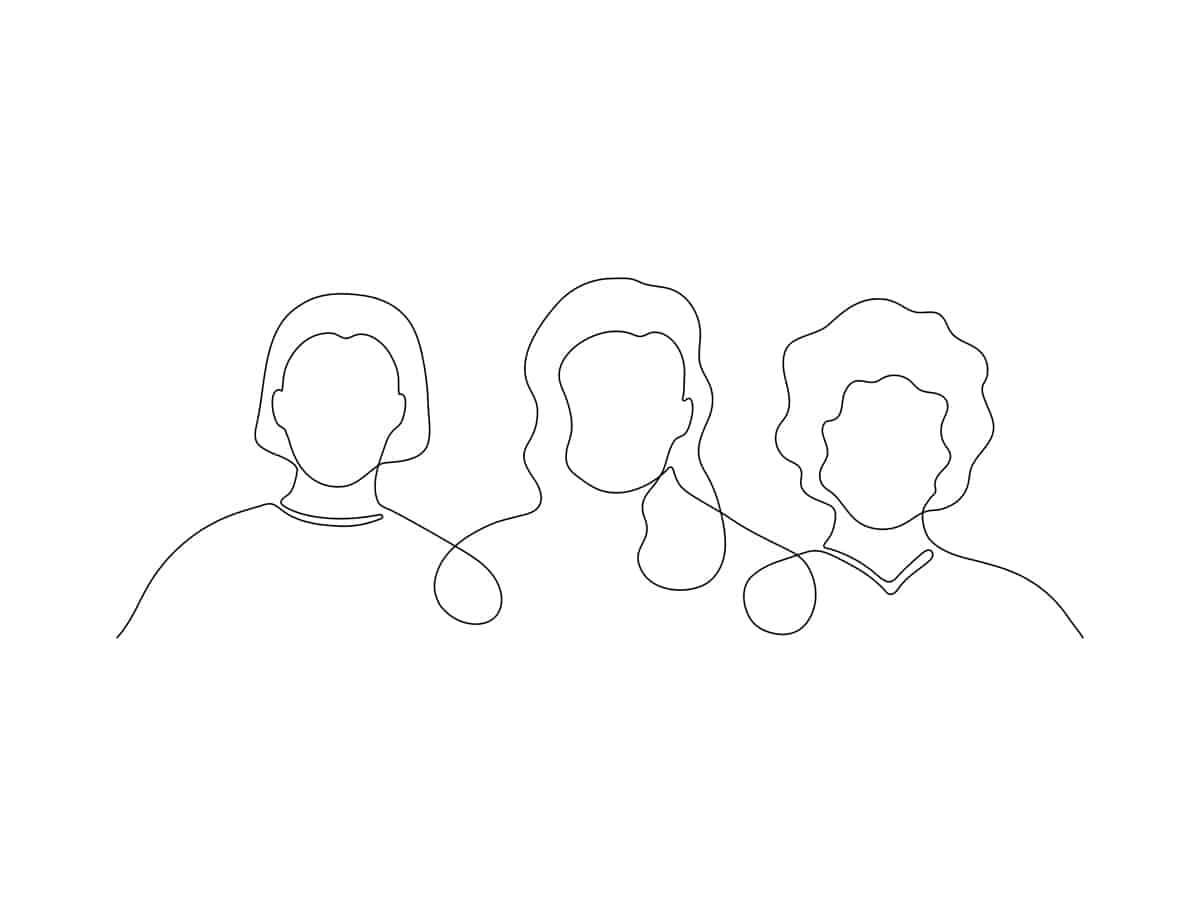O caminho de Derrick C. Brown para a poesia não foi muito típico. No início dos anos 90, o californiano se viu em uma trincheira como parte da 82ª Divisão Aerotransportada, uma divisão de infantaria do Exército dos Estados Unidos especializada em operações de assalto por paraquedas em áreas negadas. Para evitar o tédio, ele lia a Bíblia fornecida pelo exército e reescrevia os salmos em uma linguagem acessível.
Pouco tempo depois, ao sair do Exército e entrar na faculdade comunitária, um amigo o convidou para assistir a um show de poesia em uma cafeteria local e ler alguma coisa. "Li as coisas que rabisquei na Bíblia", conta Brown, sentado no ônibus da turnê do Rival Sons na parada de Toronto. "E foi muito ruim, e eles aceitaram muito bem. E foi isso que deu o pontapé inicial."
Desde então, Brown escreveu vários livros e fez turnês pelo mundo apresentando sua poesia, muitas vezes abrindo para bandas como o Cold War Kids ou comediantes como Eugene Mirman e David Cross. Ele colaborou com os pós-rockers escoceses Mogwai em um vídeo para seu poema, "A Finger, Two Dots, Then Me". Ele ganhou o prêmio Texas Book of the Year de 2013 por sua coleção Luz estranhae recentemente lançou uma antologia de peso Uh-Ohque incluiu uma nova coletânea chamada "All Energies of Death". Em março, ele lançou uma coletânea de poemas de amor chamada Como o corpo funciona no escuroque mescla inteligência cativante, esperteza e emoção de tirar o fôlego. É uma combinação que Brown aprimorou desde os primeiros dias na cafeteria.

Aqui em Toronto, no entanto, as alergias e as viagens aéreas estão mexendo com sua cabeça. "Apenas um dos meus ouvidos está funcionando por causa dos meus seios nasais", diz ele. Independentemente do que parece ser um ataque bastante debilitante causado pelo que quer que esteja no ar de Nashville, Brown é caloroso e agradável, e fica feliz em conversar. Essa é a única data canadense da turnê e, pouco depois da meia-noite, quando o equipamento for retirado, as mãos apertadas e os livros guardados no trailer, o show inteiro pegará a estrada para Detroit.
Brown diz que, até agora, essa tem sido uma das melhores turnês de sua vida. As datas nos Estados Unidos foram incrivelmente receptivas. Mas na Europa a história foi um pouco diferente.
"Foi muito difícil", diz Brown. "Tentar levar pessoas do norte da França para a poesia inglesa e entender o humor, o poder e as comparações pode ser uma guerra, especialmente se elas quiserem aprender inglês. E eu não sei francês. Achei que a Polônia seria difícil e foi ótimo. Achei que a Itália seria difícil, mas foi muito bom, e eles cantaram junto. Em algumas cidades, como Frankfurt, jogaram merda em mim, como copos de cerveja. E em Copenhague tentaram me assobiar para fora do palco. Em Munique, houve muito barulho. Algumas cidades com as quais eu tive sorte com poesia no passado foram difíceis, porque era um público motivado pelo rock 'n' roll."
Mas as turnês são uma parte importante do que torna possível ganhar a vida como poeta em 2017. E, mesmo assim, não será fácil, é claro. "Você precisa dar aulas em uma universidade ou trabalhar para uma organização sem fins lucrativos e ser pago por meio dela, como Obter iluminação ou Mais alto que uma bombaVocê tem que fazer uma turnê, essas coisas de poesia para jovens", diz Brown. "Ou você precisa fazer uma turnê. Ou, de alguma forma, você precisa ser famoso em alguma outra coisa, como ator, músico ou atleta, e depois lançar um livro. Então você pode ganhar a vida. Mas você já está ganhando a vida de outra forma."
E fazer uma turnê certamente não é um passeio no parque. O documentário de Stephen Latty Você pertence a todos os lugares acompanhou Brown e o Cold War Kids em uma turnê europeia no final dos anos 2000, registrando muitas das apresentações de Derrick, bem como alguns dos pontos altos, baixos e intermediários da viagem. Mas Brown diz que o documento provavelmente poderia ter esclarecido um pouco mais sobre esse último aspecto e gostaria de ter dedicado mais tempo "à estranheza entre os shows, à solidão depois dos shows, ao tédio de ficar sentado em um ônibus por oito horas".
"O programa mostrou muitos poemas, quando o que é interessante para mim é o barulho, a gritaria, a conversa com os fãs, os abraços, as pessoas mostrando histórias íntimas. Eu não estava tão interessado nos poemas completos. Gostaria que fosse documentado como: 'Aqui está um artista que está tentando algo que ele não sabe se alguém já fez antes'".
No final do documentário, há uma entrevista após a turnê que revela que Brown tem sua própria imprensa, Escrever Publicação SangrentaA empresa foi criada em um empreendimento que "começou com uma mentira". Ele precisava de livros para sua primeira turnê na Alemanha, mas nenhuma das gráficas em que eles haviam sido publicados podia fornecê-los na época, então ele decidiu ver se poderia imprimi-los ele mesmo. No entanto, os preços que estavam sendo cotados acabaram rapidamente com essa ideia. Por fim, uma editora em Ohio perguntou se ele era um editor, pois eles davam descontos para editoras. Então ele disse que ligaria de volta e pediu a seu amigo que criasse rapidamente um site para a Write Bloody - um slogan de camiseta de turnê que ele havia usado - com algumas capas de livros falsas.
"E funcionou", diz Brown. "Depois, quando eu estava viajando, conheci outros poetas como Buddy Wakefield que tinham livros de aparência um pouco feia. Eu disse: 'Cara, se você conseguir um ISBN e uma capa bonita, as pessoas pagarão $15 pelo seu livro e, em vez de ganhar $3 por livro vendido, você poderá ganhar $9 e viverá muito mais facilmente das turnês'.
"A única maneira que conheço de vender livros é fazendo turnês. Portanto, se um autor consegue falar bem e não fazer com que você se sinta constrangido quando está no palco - nada de voz cantada, mas ele realmente se conecta com o público - e consegue escrever bem na página, vamos dar a ele um belo livro. E então eles podem ganhar a vida melhor na estrada".
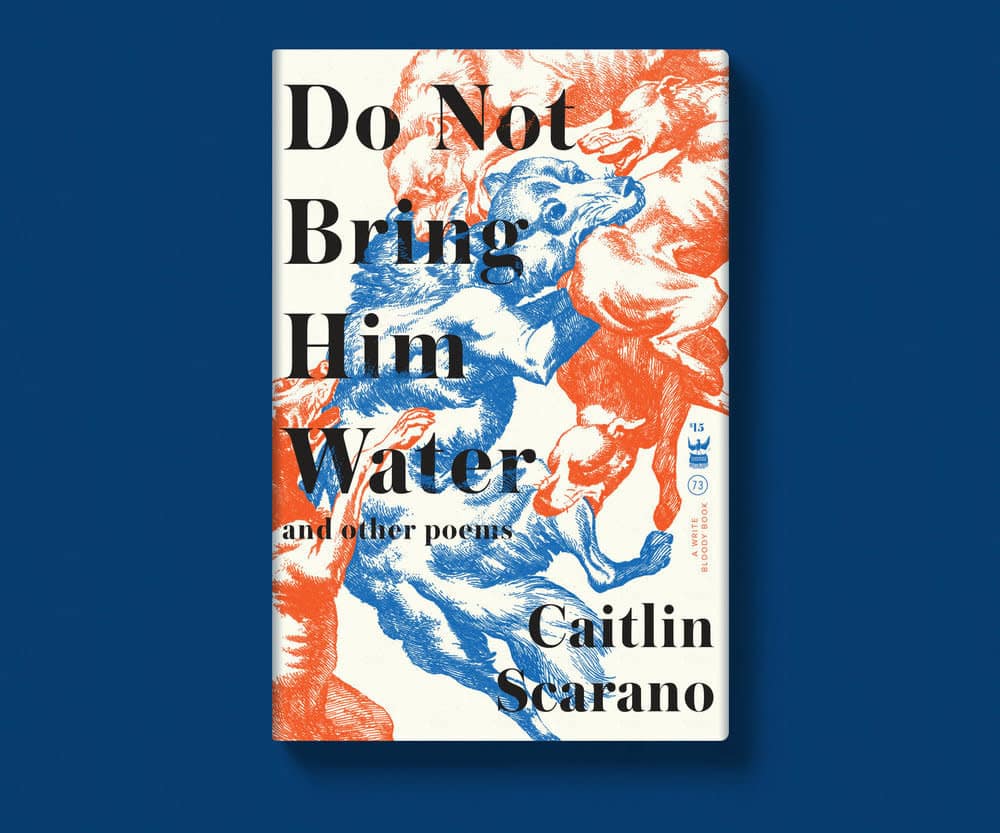
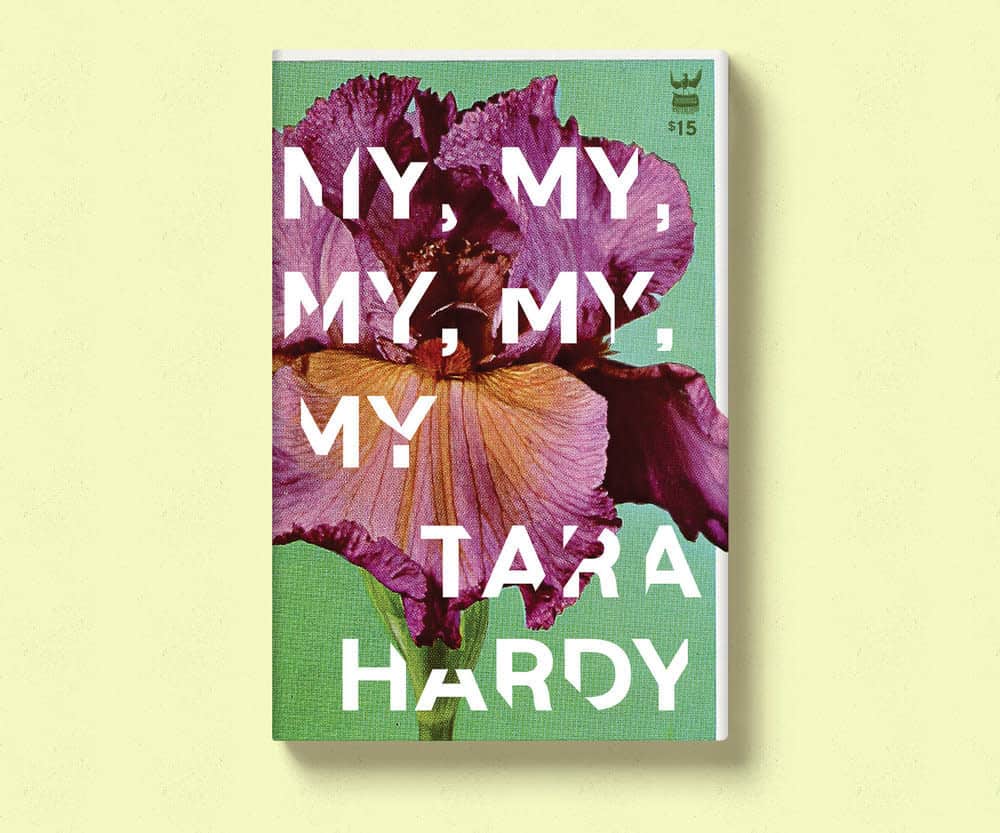
Livros dos poetas do Write Bloody, Caitlin Scarano e Tara Hardy.
Desde então, a filosofia orientadora da Write Bloody tem sido: "Deixe que os poetas e autores que fazem a turnê façam o marketing; deixe que esta editora seja a fonte de um movimento". Brown é inflexível ao afirmar que a consideração mais importante é a página escrita, mas os poetas mais capazes de se apresentar e se conectar com seu público de maneira real são os que vendem mais livros.
Seu processo para decidir quem serão esses poetas é bastante detalhado. Durante o período de envio anual, em julho, os escritores enviam cinco poemas. Se esses cinco poemas forem bem recebidos, eles são convidados a enviar outros 20. E, se conseguirem chegar à rodada final, deverão enviar um vídeo de sua leitura. Se a leitura for bem feita - sem ar de bobo ou afetações melodramáticas -, eles enviam de 40 a 50 poemas e definem uma data de lançamento para o ano seguinte. A partir daí, eles aprimoram o trabalho com os editores.
As raízes de Brown na música independente são profundas, e o Write Bloody fornece aos autores o que eles chamam de "pacote monstro", no qual ensinam a organizar uma divertida festa de lançamento de livro (o mesmo que uma festa de lançamento de disco) e a criar um kit de imprensa. Parece um caso de família: aqueles que foram escolhidos na rodada de inscrições de 2016 receberam um vídeo especial de anúncio com dança de Drake e a mensagem "Bem-vindo ao lar".
Há muito calor semelhante na poesia do próprio Brown - uma combinação de linguagem elétrica e paixão que, muitas vezes, é de cortar as entranhas e vai da hilaridade imatura à profundidade cósmica, geralmente na mesma peça. Ele usa acompanhamento musical ao ler, geralmente músicas de amigos ou de bandas que ele pediu (incluindo Kevin Drew do Broken Social Scene). Mas levou algum tempo - e alguma orientação - para passar daqueles primeiros salmos reescritos para a voz que ele tem agora.
"Naquela época, eu achava que se fosse estranho ou bizarro, era poesia, era arte", diz Brown. "E eu era super esotérico e muito além do surreal, sem nenhuma base ou gravidade no poema, sem nada que o ligasse a ele. Eu achava que a selvageria era o jogo, e eu não gostava de editar, não gostava de trabalhar, não gostava de digitar. E eu meio que abandonei meu público e meus leitores. Nunca imaginei que alguém compraria um livro de capítulos ou um livro. Eu pensava: "Bem, eu vou até lá, e isso sou eu sendo criativo! Achei que isso era tudo de que eu precisava. Mas, na verdade, o que eu desejava era conexão, e somente com a edição e a digitação desses poemas as conexões eram mais fortes."

Ele também dá crédito ao poeta Jeffrey McDaniel O autor afirma que sua obra foi uma grande inspiração inicial e uma força encorajadora em seu desenvolvimento como poeta, alguém que o ajudou a aprender a utilidade e o poder da poesia. Mas seu tempo na 82ª Força Aérea, que "me fez sentir próximo da morte e também me livrou do medo da morte", diz ele, também foi influente na formação de seu trabalho.
"A mistura de todas essas pessoas diferentes e seus ideais nas forças armadas me ajudou a sair de muitas coisas religiosas às quais eu estava preso e me deu uma perspectiva privilegiada de como as forças armadas funcionam, o que é bonito nelas e o que é uma merda. Isso me deu um pouco de equilíbrio".
Se isso tudo dá uma imagem de alguém que talvez não se encaixe na ideia tradicional do que é um poeta - os românticos de camisa de babados de antigamente ou os preguiçosos beatnik que ficam esperando a inspiração chegar - é porque Derrick Brown realmente não se encaixa nesses estereótipos. De fato, a maioria dos poetas não se encaixa.
"Temos essa batalha árdua para tentar nos livrar da roupagem da poesia como sendo conhecida como essa forma de arte masturbatória que é apenas para literatos e acadêmicos e não para a classe trabalhadora apreciar", diz Brown. "Isso não significa que ela seja burra, significa apenas que é mais difícil encontrar um poeta que você goste do que encontrar uma banda que você goste. Portanto, tenho a missão de dizer: 'Eles estão por aí, e deixe-me compartilhar alguns com você por meio da minha imprensa, viajando'.
"Sei que quando faço uma turnê com um comediante, o comediante sai e diz: 'Ok, o próximo é um poeta', e todos riem. E então eles dizem: 'Não, não, ele não vai sair com uma boina. Sem listras, sem gola alta. Ele é um poeta de verdade, e eu geralmente odeio poesia. Acho que você vai gostar dele'. Essa é a melhor recomendação, quando alguém vem depois e diz: 'Eu odeio poesia, mas adorei esta noite'. Você achava que odiava poesia, mas simplesmente não tinha lido ninguém com quem tivesse se conectado. Mas você está por aí. E há mais coisas boas por aí do que jamais houve."
Quando Brown sobe ao palco algumas horas mais tarde, o público está desordenado, meio na marra e não está particularmente interessado em ver poesia. Há um provocador em particular, um garoto de cabelo comprido e oleoso que parece estar na cidade apenas esta noite, emprestado pelos subúrbios, que se recusa a calar a boca. É um trabalho difícil, mas Brown é suavemente implacável - sua capacidade de ter esperança e otimismo parece não ter fundo - e continua. Em seu último poema, ele lê "Chrome Hotel", que conta a história de um homem solitário que espera para ver se a mulher que conheceu antes irá até seu quarto. Ele começa suavemente e, bem... sem revelar muito, cresce nos últimos minutos em um final explosivo, lascivo e sem fôlego. Parece um triunfo da poesia no show de rock 'n' roll.
No bar após o show, cercado por alguns amigos e fãs, Brown senta-se em uma cabine visivelmente exausto por causa das alergias que o têm atormentado e da luta que teve que travar com um público que veio atrás de riffs e, em vez disso, recebeu uma leitura. Mas, mais de uma vez, ele olha para todos e diz: "Esta é a minha parte favorita da noite".
O nível de exigência pode ter sido um pouco baixo, mas seu apreço genuíno pelas conexões que vêm junto com o que ele faz - abrir a boca em público - é evidente. Perto do final da noite, antes de pegar o ônibus para Motor City, todos fecham os olhos, erguem suas bebidas no ar e ele recita o final de seu poema, "Church of the Broken Axe Handle". O poder da poesia fica claro em suas linhas finais: "Você não pode ser abandonado - você só pode ser libertado".


